Vegetable shortage: How to cope as supermarkets ration lettuces
- Published
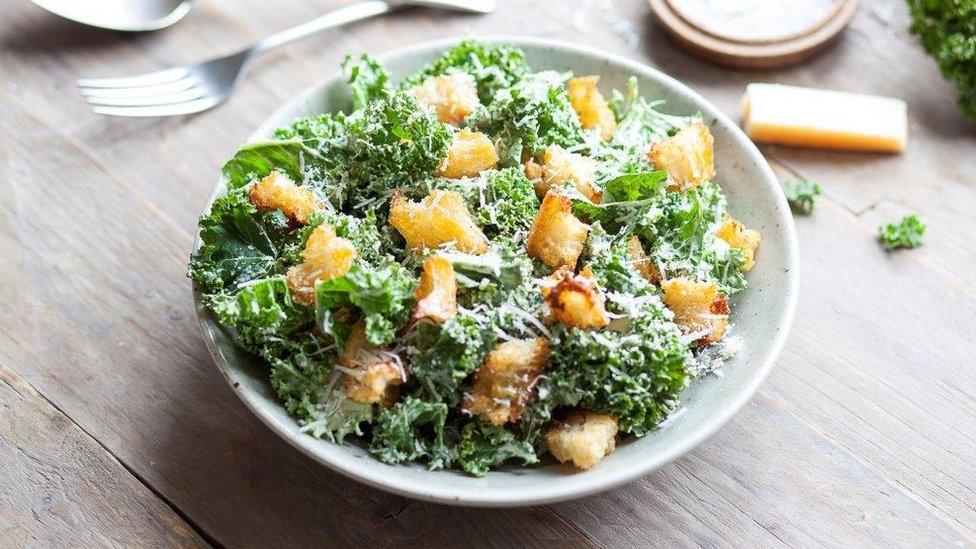
Kale is used as an alternative to iceberg lettuce in Riverford's Caesar salad
Some supermarkets are rationing iceberg lettuces, with experts warning it could be the, er, tip of the iceberg.
Bad weather in Europe has already caused a #courgette crisis, alongside a shortage of broccoli, tomatoes, salad peppers and aubergines.
With vegetable shortages expected to continue until April, what alternatives are there for shoppers?
Go native
During the UK's winter months of December, January and February, UK farmers produce beetroot, Brussel sprouts, cabbage, cauliflower, celeriac, chicory, fennel, Jerusalem artichokes, kale, leeks, parsnips, potatoes, red cabbage, swede and turnips.
We've become a "slightly strange group", expecting all-year-round produce, according to Lord Haskins, the former chairman of Northern Foods, which supplies Tesco.
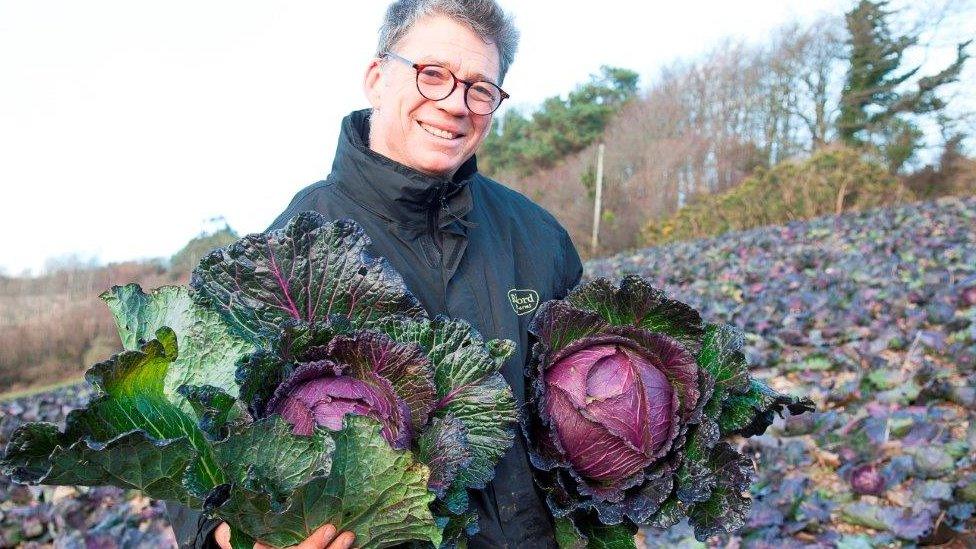
Riverford founder Guy Watson with the January King cabbage
"Thirty years ago you'd never have worried about buying lettuce in the middle of the winter - lettuces were things that grew in the summer and you ate them in the summer - you ate cauliflowers and Brussels sprouts in the winter," he says.
As for courgettes, they are actually "very, very out of season", says organic vegetable retailer Riverford. We have just got used to supermarkets supplying them all year round.
Cheap and healthy
Eating British produce that's in season is often cheaper, as it is produced locally - and it can be healthier too.
According to food industry campaign group Love British Food, fruit and vegetables that are in season contain the nutrients, minerals and trace elements that our bodies need at particular times of year.
Apples, for example, are packed with vitamin C to boost our resistance to winter colds.
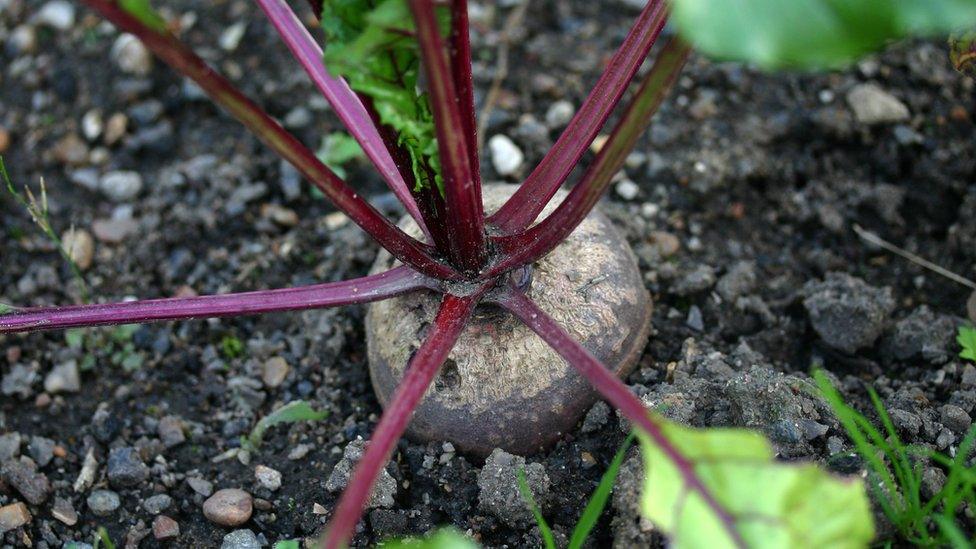
Beetroot is "terrific in soups" says Alexia Robinson from Love British Food
The group's Alexia Robinson recommends beetroot, kale, cabbages, broccoli and traditional root vegetables for their health-giving properties.
Riverford says a slaw made with cabbage, beetroot or swede will offer "10 times more nutrients" than an iceberg lettuce - which it says aren't known for their nutritional value.
Buy local
If you are really keen on iceberg lettuces, you can probably pay a bit more for one from Peru or South Africa, says Lord Haskins.
But imported vegetables can clock up a lot of air miles before they land on your plate - making them worse for the environment.
Hatty Richards, from the Community Farm in Chew Magna, Somerset, says buying local is better.
"We have such a range on our doorsteps already, it's fresher, it's really good for the environment - it reduces air miles - and it supports local business which is crucial."
Lord Haskins agrees, and suggests your tastebuds may also be grateful:
"We all buy stuff from far parts. They don't taste nearly as good: strawberries at this time of year from Egypt don't taste anything like as good as a British strawberry in May, June, July."
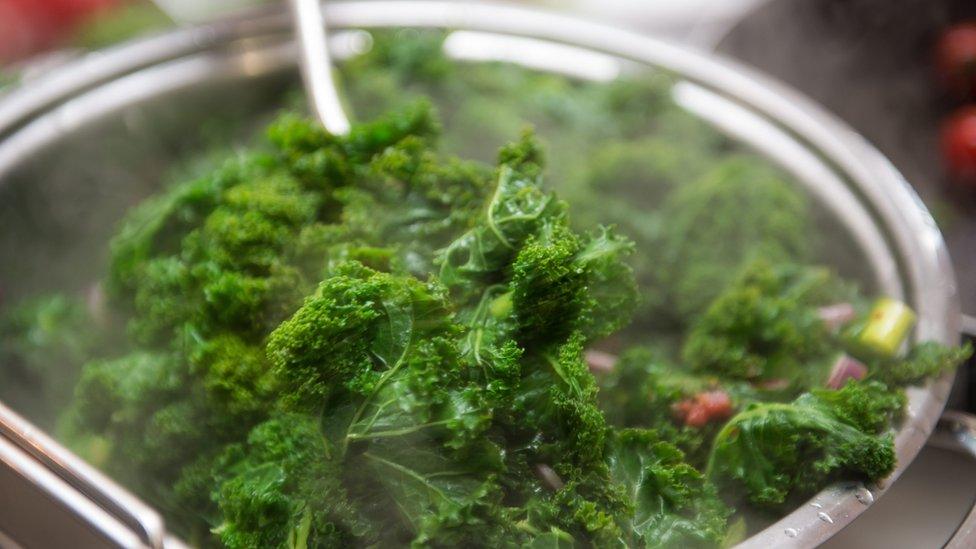
Kale is a hardy winter leaf that can withstand frosty weather
Be inventive
A leafy salad is nice - but there are plenty of alternative dishes to try.
Riverford's Guy Watson thinks the UK's more bitter winter salad leaves and root vegetables can provide "a far superior substitute" which will easily make up for a lack of lettuce.
Vibrant winter coleslaws and cauliflower salads "bring British veg to life", he says, adding that one of the Riverford Field Kitchen's most popular winter dishes is a kale caesar salad.
Kale, which was originally used to feed cows, is a robust, hardy winder leaf that can withstand frosty weather. It can also be used in soups, stews, stir fries, gratins or just wilted with butter.
Ms Robinson suggests embracing winter comfort food with a "good old fashioned winter stew with plenty of root vegetables with tender meat".
Grow your own
If you're still not convinced you can do without leafy salads, try growing your own.
Those who do want to eat lettuce need not despair. According to the campaign group Eat Seasonably, lettuce, rocket and other crunchy salad leaves are some of the easiest things to grow at home, all year around - on a seed tray indoors, on your window sill or in the garden.
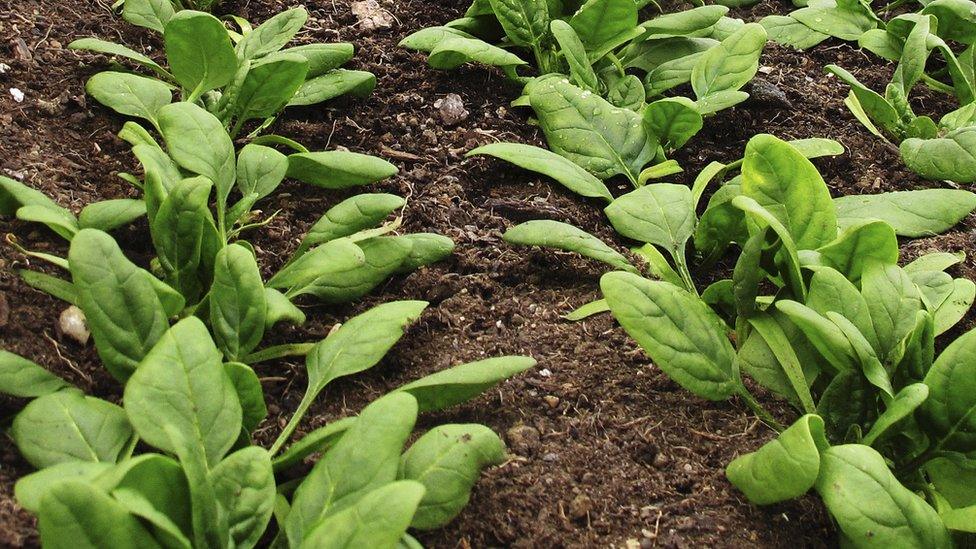
Spinach is easily grown, even in window boxes, says Ms Robinson
Ms Robinson says: "As well as the cress there are many great veg that can be easily grown in window boxes such as leaf lettuce, radishes, spinach, green onions and of course a good selection of herbs."
Another easy win is beetroot, Eat Seasonably says, which can be grown in a big pot. Though beetroot is harvested in October, Riverford says it can last up to four months if it's kept in a cold storage.
"Carrots are not too hard to grow either," Riverford's Emily Muddeman said, "Leeks, kale - you could plant just four or five stalks of kale and it will go on sprouting."
Any budding gardeners could start with planting onions later this month - Eat Seasonably says they are "not even slightly difficult to grow".
- Published3 February 2017
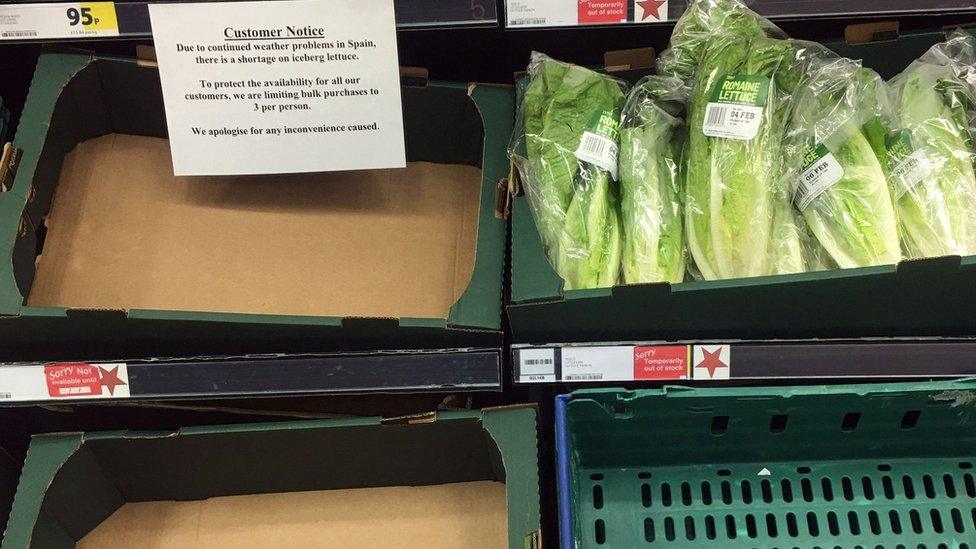
- Published3 February 2017
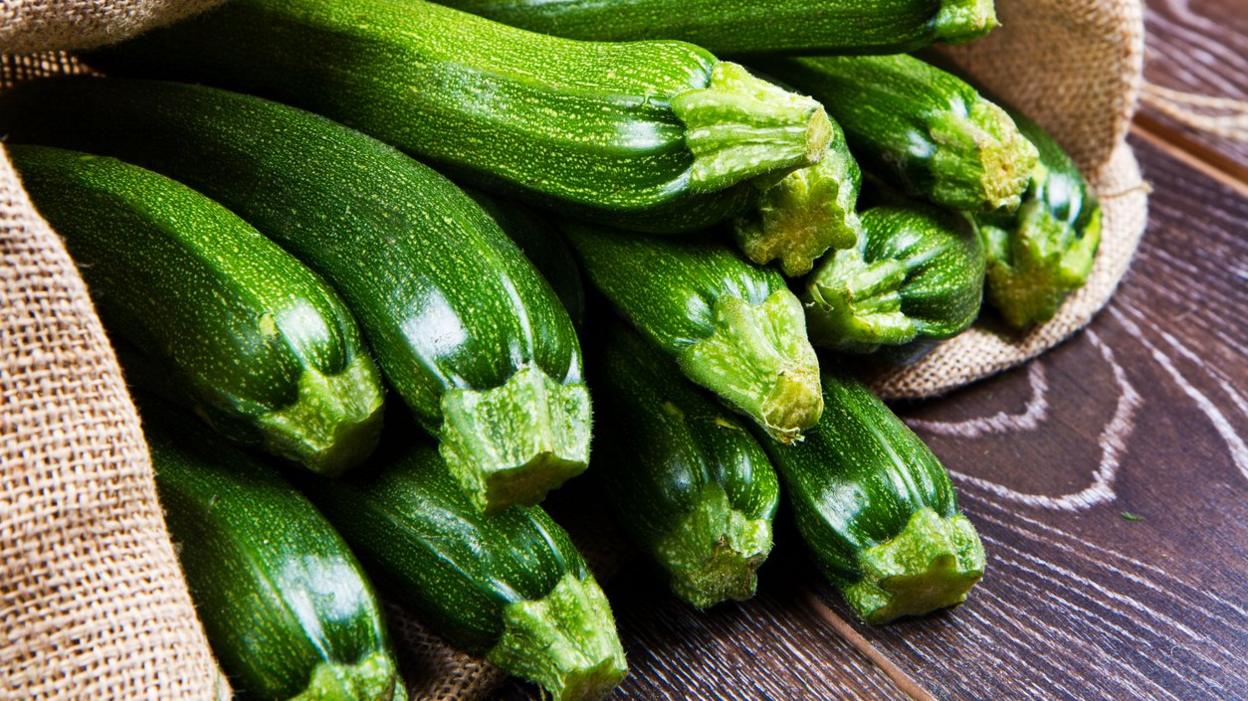
- Published19 January 2017
